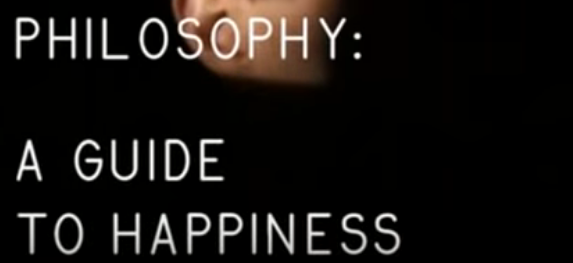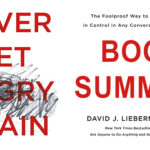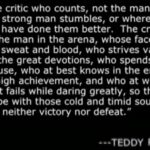Philosophy: A Guide to Happiness 1
(I typed this stuff from Episodes on TV so it may be pretty vague)
Socrates on Self-confidence
Socrates was born in 469BC and married to a shrewish woman. When asked why he married such a woman he said a horse trainer has to practice on the most spirited horse. Hahaha and known to be the greatest but ugliest philosophers. And he made it worse by hardly washing or changing robes and hardly wearing sandals. It’s said that he’d been born in order to spite shoemakers.
Dude said we should be solid in our own beliefs and not be swayed by others opinions.
So anyway Socrates would hang out in the market place and ask people why they were living the life they were living and the meaning of life. They didn’t know. Basically if you ask folks why this and that you’ll find a lot of inadequacies.
Good way of thinking and end up confident.
1 – look around you for statements that are plain common sense.
2 – try find an exception to this.
3 – if an exception is found it must mean your statement is either false or imprecise.
4 – try to nuance the statement to take the exception into account.
5 – Rinse and repeat till there is no exception.
The truth lies in the statement that appears impossible to disprove.
Philosophy: A Guide to Happiness 2
Epicurus on Happiness
Dude says advertisements are the worst coz they make us feel like we’ll be happy after we get so and so in our life. (Like some hotwings or wicked stingray boots… who needs it ay?)
Ingredients to happiness
1 – Friends and permanent companions (especially says never to eat alone).
2 – Freedom, being financially independent, being self-sufficient.
3 – Time to think your life through.
Philosophy: A Guide to Happiness 3
Seneca on Anger
Dude says it’s mostly our anger. He also says we’re mostly like dogs tied to a moving chariot and the leash gives us some freedom but not enough to move wherever we want. Once the dog realises it he goes along with it… so go along in the direction you don’t want to go instead of fighting the power? Hmmm… I don’t know. But we have reason so we can decide what we can and cannot change. And change our attitudes towards those beliefs.
His recipe is
1 – Be more pessimistic so you’re not too surprised and can adjust to the situation. (I say be dispassionate unless you do want to enjoy some anger tantrums)
2 – Then accept that we can do nothing about our frustrations.
3 – He also suggests a calm daily meditation on all the things why might go wrong.
Philosophy: A Guide to Happiness 4
Montaigne on Self-esteem
In his book, Montaigne basically covers 3 areas.
1 – Our bodies
2 – Our lifestyle/habits being judged by others
3 – Our intellectual inadequacies.
Dude writes all sorts in his book… like he noted down his bowel movements and things like that. He got his servants to ring the castle bell in the middle of the night because he loved falling asleep. Even though Michel De Montaigne was the mayor of Bordeaux, one would feel like he’s more like a friend… simple and humble.
Dude says the first problem we have with our mind is that it forms awkward relationships with our bodies. Like I think I’m too fat or sexual hang-ups and such. It’s because we’re afraid to talk about our bodies in public. E.g. Reactions to the Vipassana story right hahaha. Well this guy says we are part animal and be it kings or philosophers they all shit… and so do ladies. He believed animals were our equals… they are more natural with their bodies.
Next is what we believe is right and how we impose it on others. Being afraid of showing your real likes or opinions. (I love this one) Solution: Go travelling. Either in reality or in you mind. Explore the cultures and realize the differences. It will help accept them and also more aspects of ourselves.
Wisdom is next. All you need for that is humility, modesty and acceptance of your intellectual limitations. And once again our educational systems are dissed. Montaigne says when your intellectual adequacy is challenged… imagine the challenger on a toilet seat and noted… even on the highest throne we are seated there upon our arses. And to keep himself in check he had about 52 quotes from the bible carved on his ceiling beams.
Philosophy: A Guide to Happiness 5
Schopenhauer on Love
Now this dude totally believes we should love and be in love and be with the one we love etc. BUTTTT… we make a mistake when we expect happiness from love. Funny note: Dude met a 19 year old and opened his heart by discussing philosophy and giving her grapes on a boat which she slyly let float away coz they were touched by ‘old Schopenhauer’. So even though his love life sucked he says nothing is more important. Love to this guys is the will to life, our biology tricks us to fall in love and make babies. Only you don’t think that consciously so that has to remain unconscious. ??? So when you’re gaming someone for a date you really want babies unconsciously. Why do we fall for someone not suited for us sometimes? Because ‘unconsciously’ we feel they’ll make an ideal co-parent. And because those people will cancel out any imperfections we may have. Like tall would be attracted to short, one without chin would go for one with double chin? Light for dark to even out the colour etc.
And that is where the confusion kicks in… because they’ll be the ideal co-parent… I’ll be happy with them. What? Dude suggests swallowing a toad every morning so they wont meet anything more disgusting in the day ahead? This guy’s pretty gloomy. One of his quotes is ‘it’s safer trusting fear than faith’. Dude goes on to giving his love to poodles and had keen interests in animal welfare.
Towards the end his books gained popularity… some folks even paid homage to him by getting poodles. In a nutshell… we are bound to fall in love as biology is stronger than reason. Our will to life is so strong and we think that reproduction will bring us happiness. So when you get rejected it’s more like the person thinks they’ll make better kids with someone else.
Philosophy: A Guide to Happiness 6
Nietzsche on Hardship
Now this guy wished the worst things on his close peeps as that’s what he believed was the way forward. Dude suffered a lot of physical illness due to the Syphilis he ‘picked up’ in college. His love life sucked too mostly because of his horrendous moustache. I mean that thing went past the lips and to the middle of the chin. Question: How the hell did he eat? He says any achievement is brought on by hard work. Just like ballet where you practice and practice till you get it right… then practice and practice till you make it look like it is simple.
So he believed in suffering but it’s not only the suffering… it’s what you take from it, how you deal with it. Also failure is very important. Nietzsche says take something ugly that life gives you and turn it into something beautiful… like a gardener who hides the ugly roots and shows the beautiful flower. Hardship is a necessary evil out of which you can harvest beautiful things.
The most disastrous thing to do is to go to the pubs. Abstain from alcohol completely, water always suffices. Happiness does not come from escaping troubles… the last thing to do is to drown them. What? His parents were Parsi? Dude was against Christianity. Why? Because service will make you feel quite good in the start just like alcohol… but it dulls pain and the energy that pain gives us. He hated stuff like rich don’t go to heaven, the timid/meek will inherit the Earth and other lines in the Bible. It was false comfort.
Even though Nietzsche was poor, sick and lonely… he never behaved the way he accused Christians of behaving. Like he never declared health and wealth were bad. When he talks about fulfilment he does not mean the cosy well-being we’d normally mean. So he’s the one that said ‘that which does not kill me, only makes me stronger’. He thought vital pain would increase the happiness he had in mind. So yeah… not everything that makes you suffer is bad and not all that makes you happy is good. The End.




